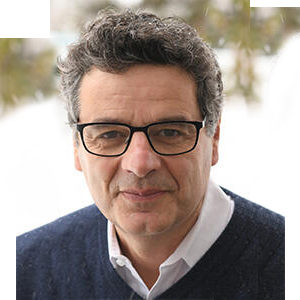Over the last last thirty years, we have experienced more than a billion-fold increase in hardware capabilities and a dizzying pace of acquiring and transmitting massive amounts of data. Artificial Intelligence (AI) has been the beneficiaries of these advances, and today it is increasingly embedded in technologies that touch every aspect of humanity. However, along with the abundance of promise there is an ever increasing amount of hype, in particular regarding the capabilities of learning algorithms to model, predict and control complex fluid mechanics problems.

In this talk I will offer a perspective on forming alloys of AI and simulations for the prediction and control of complex flow systems. I will present novel algorithms for learning the Effective Dynamics (LED) of complex flows and a fusion of multi- agent reinforcement learning and scientific computing (SciMARL) for modeling and control of complex flow-structure interactions. I will juxtapose successes and failures and argue that the proper fusion of fluid mechanics knowledge and AI expertise are essential to advance scientific frontiers.
Petros Koumoutsakos is the Herbert S. Winokur, Jr. Professor of Engineering and Applied Sciences and Area Chair for Applied Mathematics at Harvard’s John A. Paulson School of Engineering and Applied Sciences (SEAS). He studied Naval Architecture (Diploma-NTU of Athens, M.Eng.-U. of Michigan), Aeronautics and Applied Mathematics (PhD-Caltech) and he has served as the Chair of Computational Science at ETH Zurich (1997-2020).
Petros is a Fellow of the American Society of Mechanical Engineers (ASME), the American Physical Society (APS), and the Society of Industrial and Applied Mathematics (SIAM). He is a recipient of the Advanced Investigator Award by the European Research Council and the ACM Gordon Bell prize in Supercomputing. He is an International Member of the U.S. National Academy of Engineering (NAE).
His research interests are on the fundamentals and applications of computing and artificial intelligence to understand, predict and optimize fluid flows in engineering, nanotechnology, and medicine.